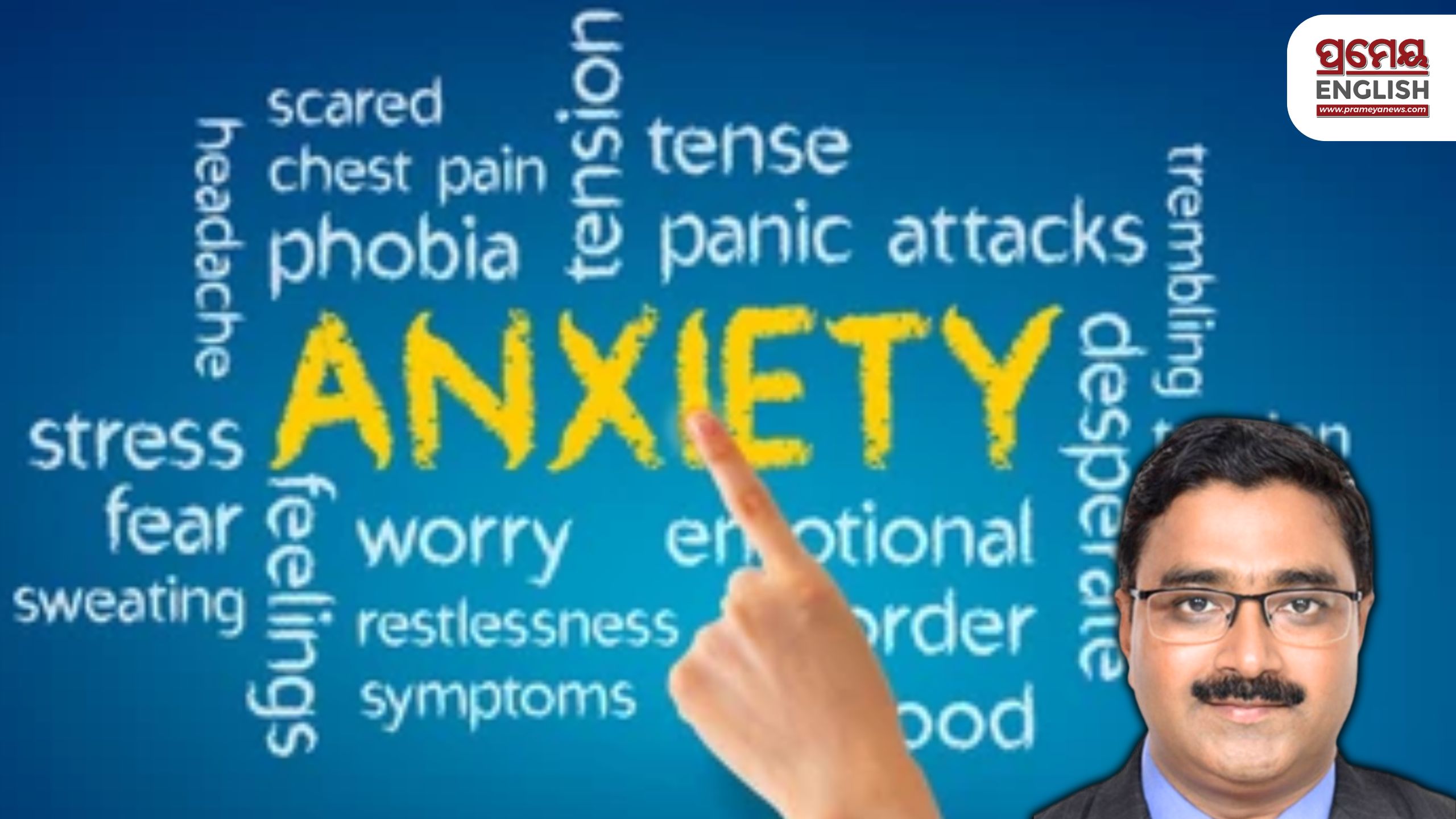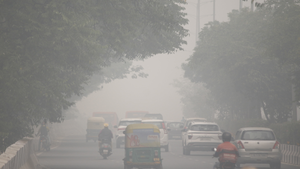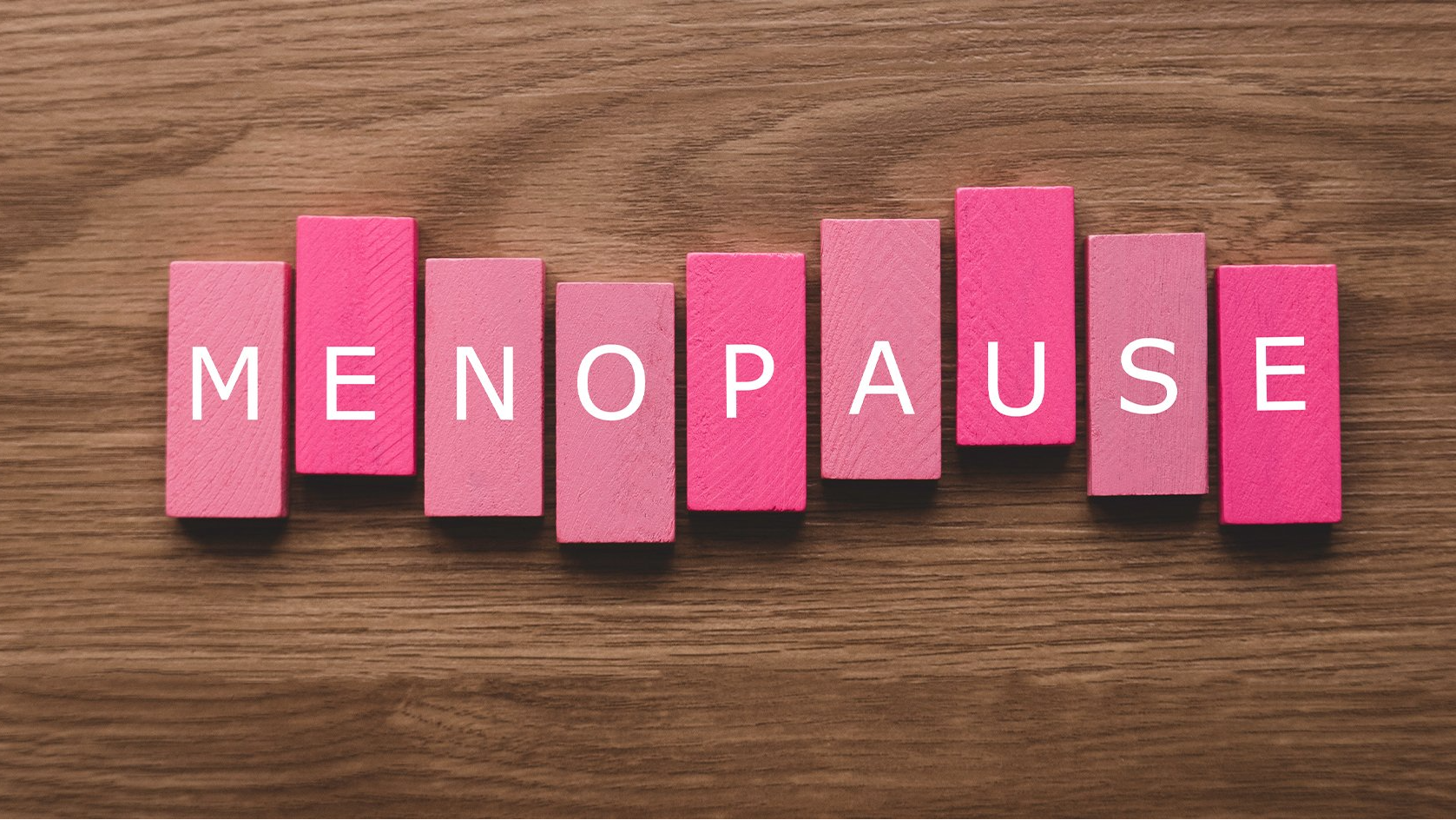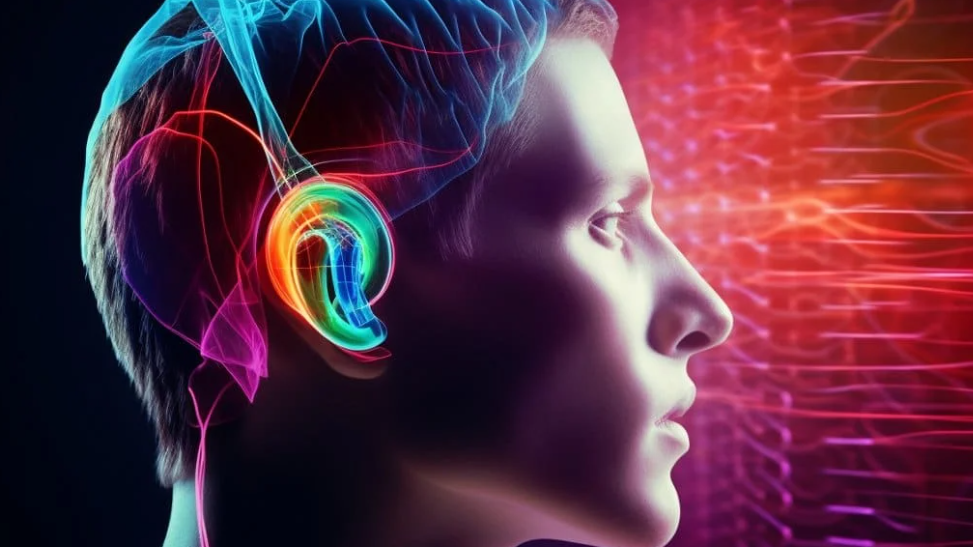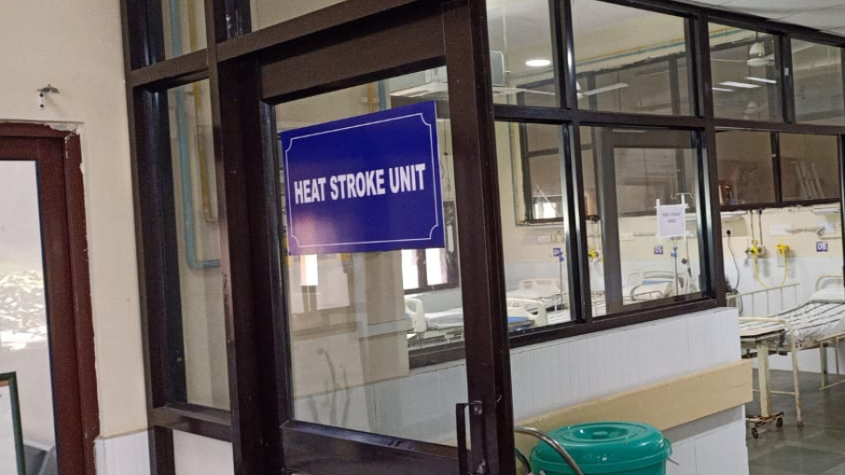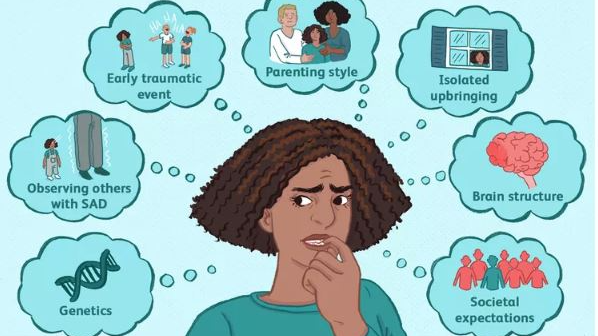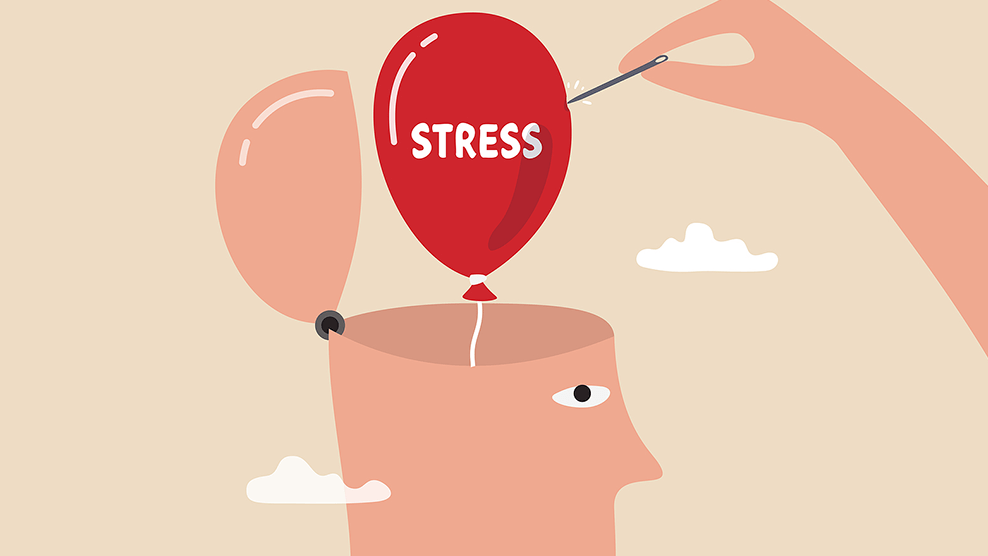TUHINA SAHOO
Anxiety is a natural human response to stress and danger. It's that feeling of unease, worry, or fear that everyone experiences at some point in life. However, for some individuals, anxiety becomes more than just a passing emotion—it evolves into a disorder that can significantly impact daily life. Understanding anxiety disorders, their symptoms, and available treatments is crucial for effectively managing this condition.
Prameya English interacted with Prof. Dr. Surjeet Sahoo- Head of the Department of Psychiatry at the Institute of Medical Sciences and SUM Hospital in Bhubaneswar on Anxiety. Let’s see what Dr. Sahoo says about this:
What is an Anxiety Disorder?
Anxiety disorders encompass a range of mental health conditions characterized by excessive fear, worry, or apprehension. Unlike normal anxiety, which may arise in response to specific stressors, anxiety disorders persist over time and interfere with daily functioning. Individuals with anxiety disorders often experience intense physical symptoms alongside psychological distress.
Symptoms of Anxiety Disorders:
The symptoms of anxiety disorders can manifest in physical, psychological, and behavioral ways. Physical symptoms may include rapid heartbeat, sweating, nausea, and muscle tension. Psychological symptoms may involve feelings of panic, fear, or dread, along with excessive worrying and difficulty concentrating. Behavioral symptoms may include avoidance of certain situations or compulsive behaviors aimed at reducing anxiety.
Risk Factors and Causes:
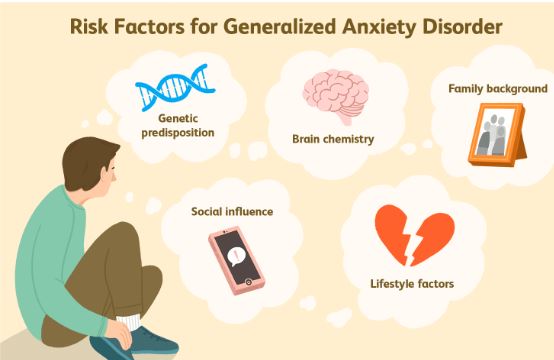
Anxiety disorders can develop as a result of various factors, including genetics, brain chemistry, and life experiences. Certain personality traits, such as shyness or behavioral inhibition, may increase the risk of developing an anxiety disorder. Additionally, exposure to stressful or traumatic events, both in childhood and adulthood, can contribute to the development of anxiety disorders.
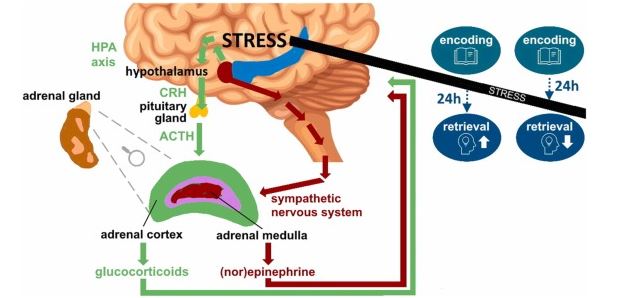
Basically when your adrenal glands release adrenaline, your body gets ready to defend itself from what it thinks is danger. If adrenaline is released when there's no real danger, it can make you feel anxious by revving up your nervous system.
How lengthy is an episode of anxiety?
Typically, anxiety attacks span from a few minutes to around two hours. During these episodes, the perception of time may distort, making these two hours feel like an eternity.
Types of Anxiety Disorders and their Diagnosis and Treatment:
Diagnosing anxiety disorders involves a thorough evaluation of symptoms and medical history. Treatment for anxiety disorders often involves a combination of medication and psychotherapy. Medications may be prescribed to alleviate symptoms and regulate brain chemistry. Psychotherapy, particularly cognitive-behavioral therapy (CBT) and exposure therapy, helps individuals learn coping strategies, challenge irrational thoughts, and gradually confront feared situations.
Generalized Anxiety Disorder:
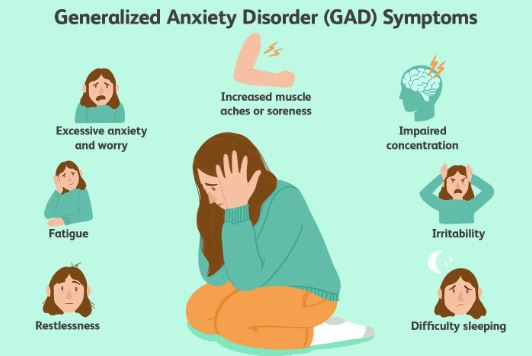
GAD can develop at any stage of life, affecting individuals from childhood through adulthood. While sharing similarities with panic disorder, obsessive-compulsive disorder, and other anxiety conditions, GAD presents its own unique set of symptoms and challenges.
Living with GAD can pose ongoing difficulties, often coinciding with other anxiety or mood disorders. Fortunately, effective treatments such as psychotherapy and medications are available, offering relief and support. Additionally, adopting lifestyle changes, acquiring coping strategies, and incorporating relaxation techniques into daily routines can further enhance management of GAD symptoms.
Panic Disorder:
Panic disorder involves recurrent and unexpected panic attacks, characterized by sudden bouts of intense fear or discomfort. These attacks can be debilitating and are often accompanied by physical symptoms like palpitations, chest pain, and sweating.
Specific Anxiety Disorder:
You experience profound fear towards a particular object or scenario, such as heights or flying. This fear surpasses what is considered reasonable and may lead you to avoid everyday situations.
Phobias:
Phobias are irrational and overwhelming fears of specific objects, situations, or activities. Common phobias include fear of heights, spiders, or flying. Individuals with phobias may go to great lengths to avoid their triggers, leading to significant disruptions in daily life.
Social Anxiety Disorder:
Social anxiety disorder involves an intense fear of social situations and scrutiny by others. Individuals with this disorder may avoid social gatherings or public speaking opportunities due to fear of embarrassment or judgment like stage fear.
Can anxiety lead to depression?
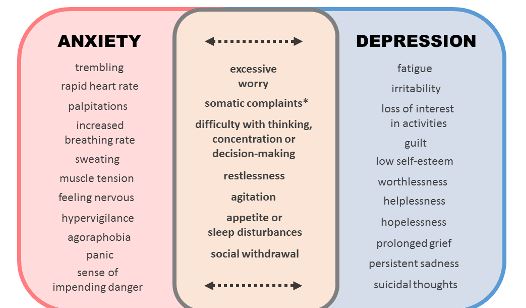
Anxiety and depression might arise from similar brain structures or processes, a condition known as comorbidity. Approximately 60% of individuals experience both conditions. Early life stress or trauma can trigger both depression and anxiety. If you have anxiety, you may be more likely to develop depression as well.
Medication:
Doctors often recommend selective serotonin reuptake inhibitors (SSRIs), along with practices like yoga and meditation, for individuals dealing with anxiety.

Anxiety disorders are common mental health conditions that can have a significant impact on individuals' lives.

However, with proper diagnosis and treatment, it's possible to manage anxiety and improve overall well-being. If you or someone you know is struggling with anxiety symptoms, don't hesitate to seek help from a qualified healthcare professional. Remember, you're not alone, and support is available to help you navigate through anxiety and reclaim control of your life.








